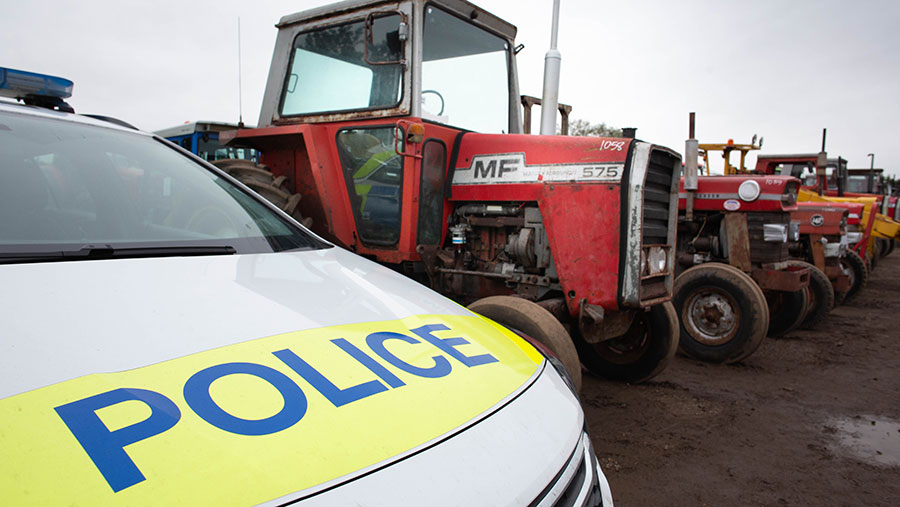Foreign drug gangs target farming communities, report reveals
 © Tim Scrivener
© Tim Scrivener Serious organised criminals – including those linked to the international drugs trade – are increasingly preying on rural communities, a new report has found.
The report, produced by Durham University and commissioned by the National Rural Crime Network (NRCN) in conjunction with the Countryside Alliance, Country Land and Business Association, and the NFU, claims many crimes are being committed by “prolific rural offenders”.
Despite the growing threat of crime facing rural people, campaigners say police forces across the UK are treating it as a “small-scale issue”, leaving people in the countryside living in fear.
See also: Farming communities to be protected as police forces partner up
Data from the report, carried out by senior criminologist Kate Tudor, found that many rural criminals are also involved in the supply and sale of drugs on a large or global scale.
Foreign crime networks are sustaining the UK’s rural crime problem by creating international transportation and disposal routes for goods stolen from the British countryside.
Dr Tudor said: “Essentially, they are entrepreneurs working in the field of illicit business. They are already well grounded in crimes such as drug dealing, but they’re always looking for new and emerging business opportunities.”
Organised gangs
The report also revealed that 22 organised crime gangs are actively involved in rural crime across the UK.
However, only a small portion of these are mapped in formal police procedures, meaning the full extent of organised criminal activity in rural areas is unknown.
As a result, rural communities feel unsupported and have a lack of faith in rural policing due to a “collapse in police-community relationships”, which has “significant consequences for feelings of safety in rural areas” and also leads to underreporting of crimes.
A recent survey carried out by the Countryside Alliance found that 97% of rural respondents felt that crime was a significant problem in their community, and 43% reported that they had been the victim of crime in the past 12 months.
Fighting back
In response to the report’s findings, the NRCN has set out 10 recommendations which it believes will help the countryside fight back, including an overhaul of the way police prioritise rural crime.
It has called on the College of Policing to review its Threat, Harm and Investigation (Thrive) guidelines, used to assess the initial police response, to better reflect the growing organised element to rural criminality.
Additional measures include recruiting specialist rural crime co-ordinators, implementing tougher controls at ports and borders, and issuing new rural crime sentencing guidelines.
Tim Passmore, chairman of the NRCN and the police and crime commissioner for Suffolk, said: “People in rural areas are paying higher and higher taxes but often feel that policing in their communities is not a priority.
“This new research provides clear evidence that criminal gangs from the UK and abroad are using our countryside to commit crimes that fuel the drugs trade and other serious criminal activity.
“It is now time to acknowledge that, if we want to stop the organised crime gangs, we have to better protect our farms, businesses and rural communities.”
